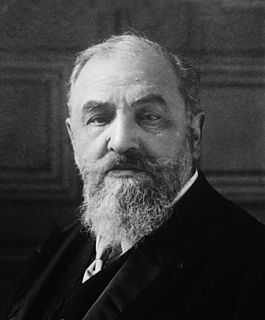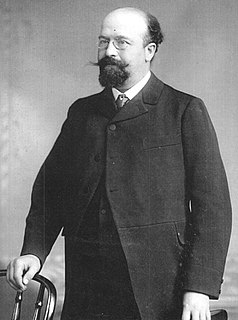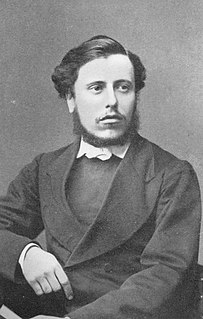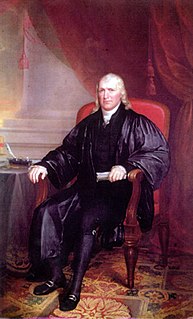A Quote by Leon Bourgeois
At first, laws evolved out of religious doctrines. It followed that they were recognized only when advantageous to those who practiced the same religion and who appeared equals under the protection of the same gods. For the members of all other cults, there was neither law nor mercy.
Related Quotes
As a matter of law the states recognized no constraints on their legislative scope other than those that were self-imposed. Even where particular state constitutions paid ideological lip service to constraints deriving from religious or natural law doctrines, they reserved to some constitutionally-defined body or person the right to interpret these doctrines.
The "establishment of religion" clause of the First Amendment means at least this: Neither a state nor the Federal Government can set up a church. Neither can pass laws which aid one religion, aid all religions, or prefer one religion over another. Neither can force nor influence a person to go to or to remain away from church against his will or force him to profess a belief or disbelief in any religion.
It must be therefore, since the enemies of the Jews belonged to the most diverse races, since they lived in countries very distant from each other, since they were ruled by very different laws, governed by opposite principles, since they had neither the same morals, nor the same customs, since they were animated by unlike dispositions which did not permit them to judge of anything in the same way, it must be therefore that the general cause of anti-Semitism has always resided in Israel itself and not in those who have fought against Israel.
Political as well as religious cults can be distinguished from legitimate organizations by their use of doublethink. Though political cults espouse extremist ideologies, not extremist theologies, operationally they are virtually identical to religious cults, and they also go to great lengths to control the vocabularies of their members.
Every man is equally entitled to protection by law. But when the laws undertake to add... artificial distinctions, to grant titles, gratuities, and exclusive privileges—to make the rich richer and the potent more powerful— the humble members of society—the farmers, mechanics, and laborers, who have neither the time nor the means of securing like favors to themselves, have a right to complain of the injustice of their government.
Where there is Love and Wisdom, there is neither Fear nor Ignorance.
Where there is Patience and Humility, there is neither Anger nor Annoyance.
Where there is Poverty and Joy, there is neither Cupidity nor Avarice.
Where there is Peace and Contemplation, there is neither Care nor Restlessness.
Where there is the Fear of God to guard the dwelling, there no enemy can enter.
Where there is Mercy and Prudence, there is neither Excess nor Harshness.
Hassan and I fed from the same breasts. We took our first steps on the same lawn in the same yard. And, under the same roof, we spoke our first words. Mine was Baba. His was Amir. My name. Looking back on it now, I think the foundation for what happened in the winter of 1975 —and all that followed— was already laid in those first words.
The millions of laws which exist for the regulation of humanity appear upon investigation to be divided into three principal categories: protection of property, protection of persons, protection of government. And by analyzing each of these three categories, we arrive at the same logical and necessary conclusion: the uselessness and hurtfulness of law.
Truth is not over there, wherever over there is. Truth is neither housed in religious rituals nor secret doctrines, nor in a guru's touch or beatific smile, nor in exotic locations or ancient temples. Truth is quite literally the only thing that does exist. It is not hidden but in plain view, not lacking but abundantly present.
The Lord of the Rings is of course a fundamentally religious and Catholic work; unconsciously so at first, but consciously in the revision. That is why I have not put in, or have cut out, practically all references to anything like 'religion', to cults or practices, in the imaginary world. For the religious element is absorbed into the story and the symbolism.











































